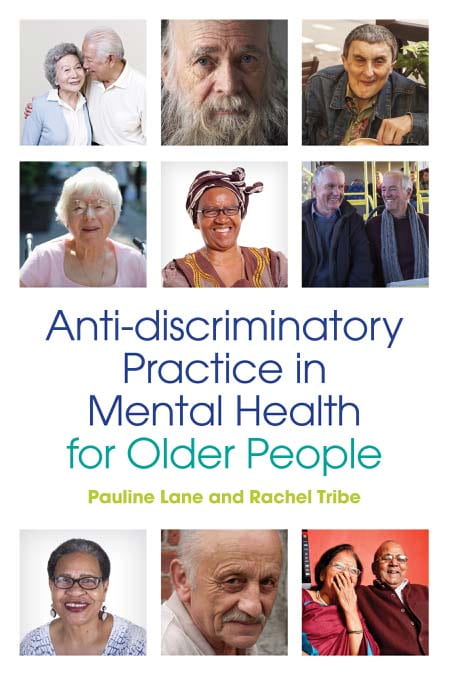Anti-Discriminatory Practices Explored by a Team of Academics
Matt Broadway-Horner (MSc Rational-Emotive and Cognitive Behaviour Therapy, 2005) is currently a doctoral student at Kings College London. He is a clinician and has worked in NHS, voluntary and private sectors for many years since 2001. Matt tells us more about his chapter ‘Ageing, Sexual Orientation and Mental Health: Lesbian, Gay, Bisexual, Transgendered and Intersex Older People’ in Anti-Discriminatory Practice in Mental Health for Older People.
When the editor Professor Rachel Tribe approached me and asked if I would like to write a chapter on LGBTIQ and I replied: “absolutely yes!” The vision was set out by the editors Rachel Tribe and Dr Pauline Lane who wanted each contributor to use their knowledge and expertise to develop a scholarly piece for an audience of students, trainers and qualified staff from all backgrounds.
The chapters explore the issues involved in working with individuals from a range of minority groups, such as LGBTIQ people, people with learning disabilities, people from black and minority ethnic communities, homeless people and people with dementia. The chapters cover important theory and research into discrimination, ageing and identity. Contributions from experts in the fields of mental health and working with minority groups provide practical insights into developing anti-discriminatory practice. There is also practical advice on culturally appropriate support for carers, cultural competency in end of life care, working with interpreters, and celebrating diversity, accompanied by supporting practical resources.
I have written books before but they were self-help psychology books on topics like depression and anxiety using CBT and mindfulness. This is my first contribution to an academic book and so I was pleased to be part of this team in developing a good book and I love the final product.
It was an opportunity to write about improving service provision for LGBTIQ. To explore the reasons with the reader as to why older LGBTIQ might hesitate before seeking services. LGBTIQ community historically has experienced brutality from the psychiatric and psychological sciences but this is forgotten in the ‘age of enlightenment’. But many older people have memories and so it is important for students today to learn about the historical context before looking into how to apply anti-discriminatory practice.
There are real reasons why a patient/service user/client may be scared to seek services and here is the adage ‘if you have knowledge then you have power’. So my faith and hope lie in the next generation of healthcare workers to change a person’s life for the better.
Privately I like to read biographies. People and the lessons they have taken and learned or not learned as the case may be, fascinate me. To read about their hopes and dreams, some succeeded and others failed but reading about them helps me see how fallible we all are. And that I am not in control of my life but that things happen by chance, this excites me and offers freedom to me. Preordained or fate scares me and I lose hope. And finally just to say there are many that inspire me within the alumni and I am pleased to be part of it.

Broadway-Horner, M (2017) Ageing, Sexual Orientation and Mental Health: Lesbian, Gay, Bisexual, Transgendered and Intersex Older People. In: Tribe, R., & Lane, P. (Ed) (2017) Anti-Discriminatory Practice in Mental Health for Older People. London: Jessica Kingsley Publishers.